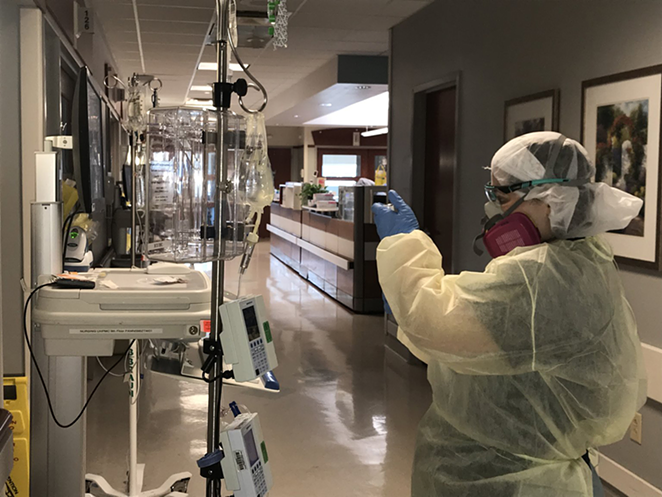As medical professionals continue to work through the pandemic, now including mass vaccination efforts, a bipartisan bill that would bar mandatory overtime for nurses has returned to the Ohio legislature.
The bill originated pre-pandemic, with its initial version (House Bill 144) passing the House with an 80-13 vote. The bill did not make it through the Senate before the 133rd General Assembly concluded.
The bill, in its previous and current version, prohibits overtime as a condition of employment for Ohio’s nurses, but does not keep nurses from working voluntary overtime.
Bill sponsors, State Rep. Al Cutrona (R-Canfield) and Rep. Bride Rose Sweeney (D-Cleveland), said the bill is meant to help nurses who feel “compelled” to work unscheduled overtime, resulting in negative health consequences for both patients and nurses.
“What we’re looking at is a situation where we improve, number one, the work conditions for the nurses; number two, we improve the patient care; (and) we save costs for the hospitals,” Cutrona said in testimony to the Ohio House Commerce and Labor Committee.
The committee, however, heard opposition to the bill from the Ohio Hospital Association and the Ohio Chamber of Commerce about the bill, both of whom claimed the bill “creates government mandates that dictate the relationship between employers and employees and represents legislation that seeks to over-regulate Ohio employers which can hinder the state’s economic competitiveness.”
“Specifically, this legislation adds another layer of regulation on the employment practices of hospitals who are already subjected to the requirement to create and implement government mandated staffing plans for their nurses,” the groups said in a joint statement to the committee.
The OHA and the chamber acknowledged that the COVID-19 took an “immense toll” on nurses and other medical caregivers, but state hospitals and organizations are creating a workplace environment to be compassionate to their needs.
“Ohio hospitals are addressing this challenge by retaining employee wellness, including mental and emotional wellbeing, as a top priority,” they wrote in their testimony.
In opposing the bill, the groups said bill supporters haven’t provided enough data to support overtime regulations as the solution to the problems nurses have.
“Instead, subjective accounts have been provided,” the OHA and OCC said. “Legislation to address an alleged issue without quantification is not necessary.”
An article published last year in the New England Journal of Medicine called the mental and physical health risks to clinicians as they continue to work amid COVID-19 a “parallel pandemic.”
“Clinicians have expressed uncertainty about whether employers would support them if they got sick,” researchers wrote in the article. “Amid extra-long work hours, many are also being asked to fill emergency roles for which they feel underprepared.”
Even before the pandemic, researchers at the Health Policy Institute of Ohio said clinicians faced “serious problems related to their overall health and wellbeing” including burnout, depression, addiction and suicide.
House Bill 163 is currently awaiting a full House vote after passing unanimously out of its House committee.
This story was originally published by the Ohio Capital Journal and republished here with permission.


